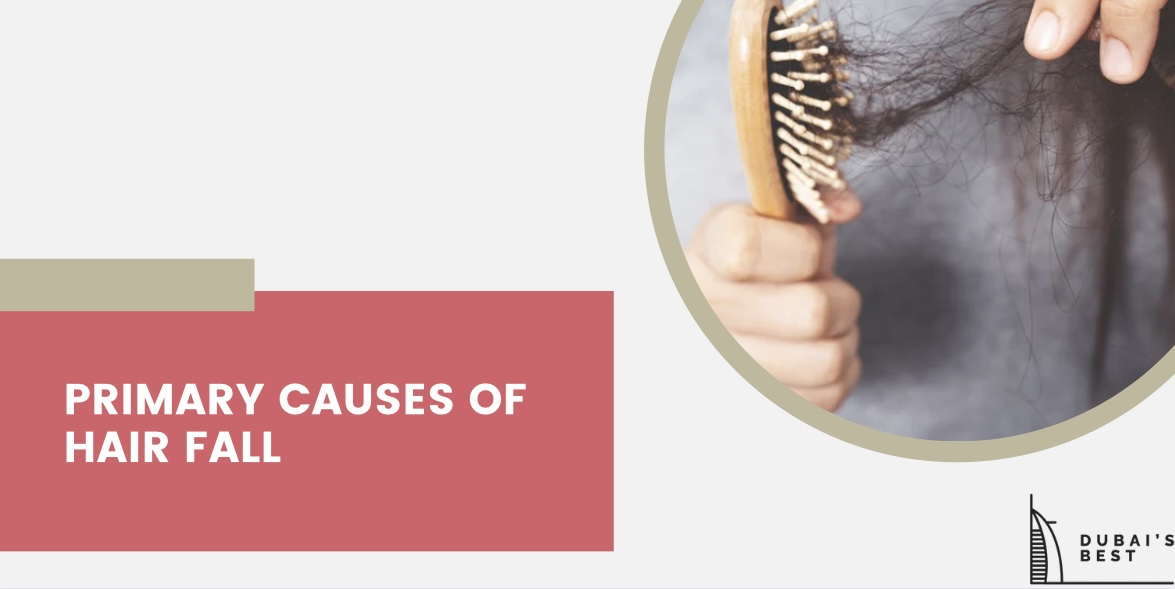Primary Causes of Hair Fall
It’s normal to find hair on your brush, but when does it become something to worry about? Millions of people worldwide deal with constant hair fall for various factors.
Most shampoos advertised today are promoted towards those having hair fall problems. Even if you have primarily thick hair, hair fall can be concerning.
After all, your hair is a significant part of how you look, so unhealthy hair may affect your confidence too. So, we’ll be listing the possible reasons why your hair could be falling out below.
1. Hormonal Changes
Hormonal changes have a more significant impact on hair loss than you may think. When estrogen and progesterone levels drop, hair growth becomes slower and thinner.
Some factors that may cause hormonal imbalance are stress, diet, and thyroid issues.
Birth control pills may also cause hormonal imbalance, which could be another factor in hair fall. If your hair fall due to your hormones is getting worse, it’s always best to consult an endocrinologist.
Aside from this, you may also lose hair after childbirth or during menopause.
2. Thyroid Disorders
Thyroid issues are another cause of hair loss. Both hyperthyroidism and hypothyroidism can lead to the falling out of your hair.
Thyroid problems affect hormone levels too, and when your hormones are disrupted, specifically T3 ad T4 hormones, it affects other functions. However, hair loss caused by thyroid issues is often temporary and nothing irreversible.
Again, you may consult your doctor about this, including the best ways to treat this.
3. Stress
Emotional and mental fatigue can really take a toll on your health, including your scalp health.
Harvard University researchers have made a link between stress and hair fall. When you’re stressed, the connection between your adrenal gland and hair follicles is affected.
Your adrenal gland produces hormones, and when you feel difficult emotions such as stress or frustration, the hormone cortisol is released. Cortisol shortens the growth phase of your hair follicles.
So, if you’re prone to mental problems like anxiety or depression or just experienced a stressful situation like childbirth or the loss of a loved one, you may experience hair loss.
You can combat this through lifestyle changes such as regular exercise, a balanced diet, and possibly meditation. You may start a gym subscription and get help from a personal trainer to help deal with your stress through physical activity.
4. Medications
Several medications come with many side effects, including hair loss. These include thyroid medications, oral contraceptives, antidepressants, beta-blockers, and anticoagulants.
However, the effects should be temporary, and your hair should go back to normal after you stop the medication.
This is because they may be toxic for your hair follicles. When your hair follicles are damaged, your usual hair growth cycle is disrupted.
5. Nutritional Deficiencies
Iron deficiency is one of the top causes of hair fall. Without enough iron, your body lacks the supply to produce sufficient hemoglobin in your blood.
Hemoglobin is responsible for repairing your cells, including the ones part of your hair growth. However, you should also take note of other vitamin deficiencies, as they can play a role in hair fall.
This includes fats; Vitamins A, B-12, C, and D; copper; biotin; and selenium. On your next payday, be sure to stock vitamin supplements to reduce the hair fall you’re experiencing.
6. Other Medical Conditions
Skin diseases like psoriasis and dermatitis may also be linked to hair loss. These often make a person scratch frequently and pick at scaly spots.
Since these skin conditions provide massive feelings of discomfort and itchiness, they will cause a lot of stress on your body. As a result, hair loss will happen.
It’s best to visit your dermatologist immediately if this is the case. Rest assured that these skin conditions are treatable, and your hair loss will stop once you manage your skin condition.
Other conditions include diabetes, liver disease, and inflammatory bowel disease.
You may also get hair loss as a side effect from some cosmetic procedures like hair transplants. If this is the case, consult your hair specialist or visit your nearest clinic for a consultation.
Hair fall can be frustrating. If this is caused by stress, ensure that you insert exercise and proper diet as part of your self-care routine.
For the conditions mentioned above, visit a doctor to get the most accurate medical opinion.

